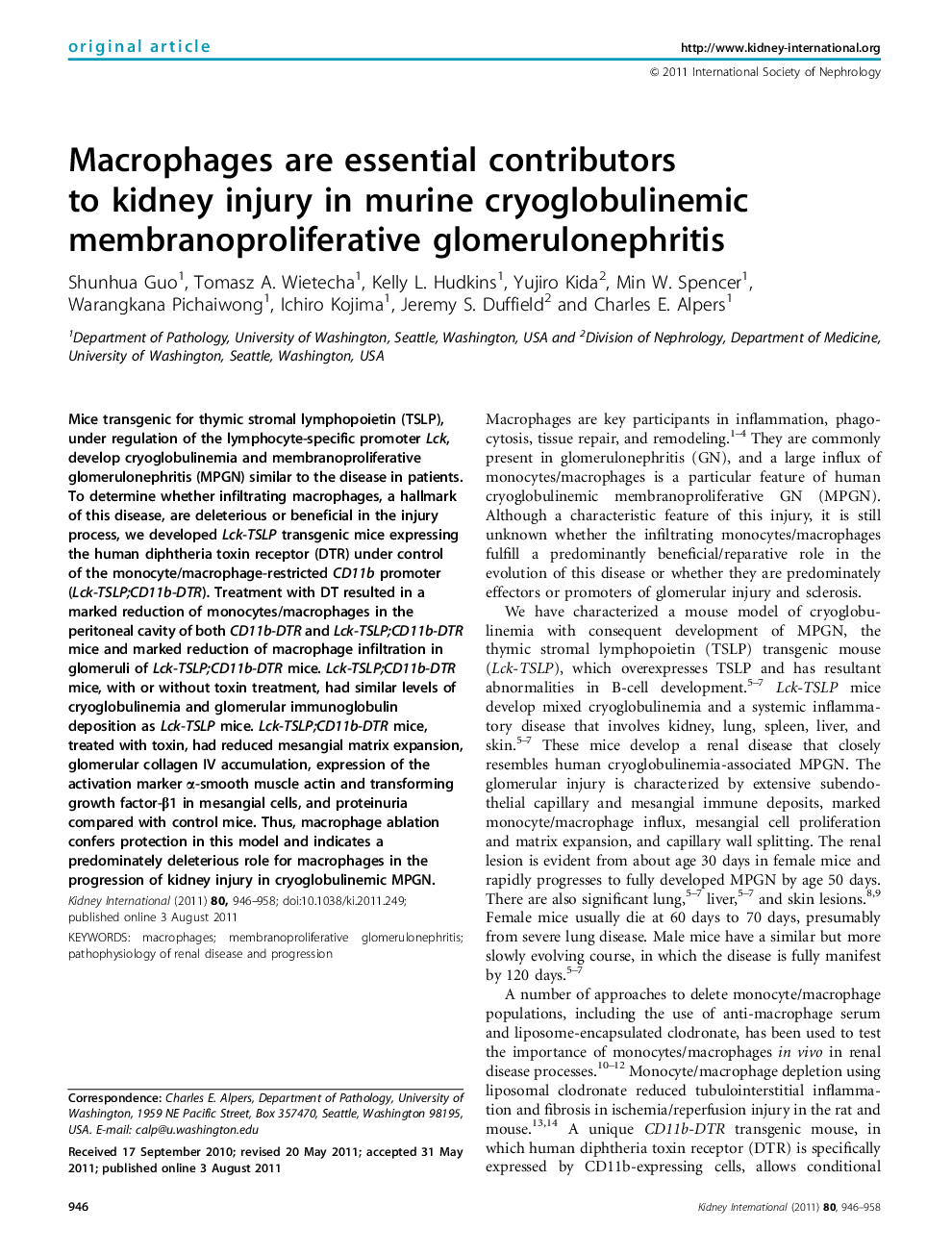| Article ID | Journal | Published Year | Pages | File Type |
|---|---|---|---|---|
| 6162295 | Kidney International | 2011 | 13 Pages |
Abstract
Mice transgenic for thymic stromal lymphopoietin (TSLP), under regulation of the lymphocyte-specific promoter Lck, develop cryoglobulinemia and membranoproliferative glomerulonephritis (MPGN) similar to the disease in patients. To determine whether infiltrating macrophages, a hallmark of this disease, are deleterious or beneficial in the injury process, we developed Lck-TSLP transgenic mice expressing the human diphtheria toxin receptor (DTR) under control of the monocyte/macrophage-restricted CD11b promoter (Lck-TSLP;CD11b-DTR). Treatment with DT resulted in a marked reduction of monocytes/macrophages in the peritoneal cavity of both CD11b-DTR and Lck-TSLP;CD11b-DTR mice and marked reduction of macrophage infiltration in glomeruli of Lck-TSLP;CD11b-DTR mice. Lck-TSLP;CD11b-DTR mice, with or without toxin treatment, had similar levels of cryoglobulinemia and glomerular immunoglobulin deposition as Lck-TSLP mice. Lck-TSLP;CD11b-DTR mice, treated with toxin, had reduced mesangial matrix expansion, glomerular collagen IV accumulation, expression of the activation marker α-smooth muscle actin and transforming growth factor-β1 in mesangial cells, and proteinuria compared with control mice. Thus, macrophage ablation confers protection in this model and indicates a predominately deleterious role for macrophages in the progression of kidney injury in cryoglobulinemic MPGN.
Keywords
Related Topics
Health Sciences
Medicine and Dentistry
Nephrology
Authors
Shunhua Guo, Tomasz A. Wietecha, Kelly L. Hudkins, Yujiro Kida, Min W. Spencer, Warangkana Pichaiwong, Ichiro Kojima, Jeremy S. Duffield, Charles E. Alpers,
